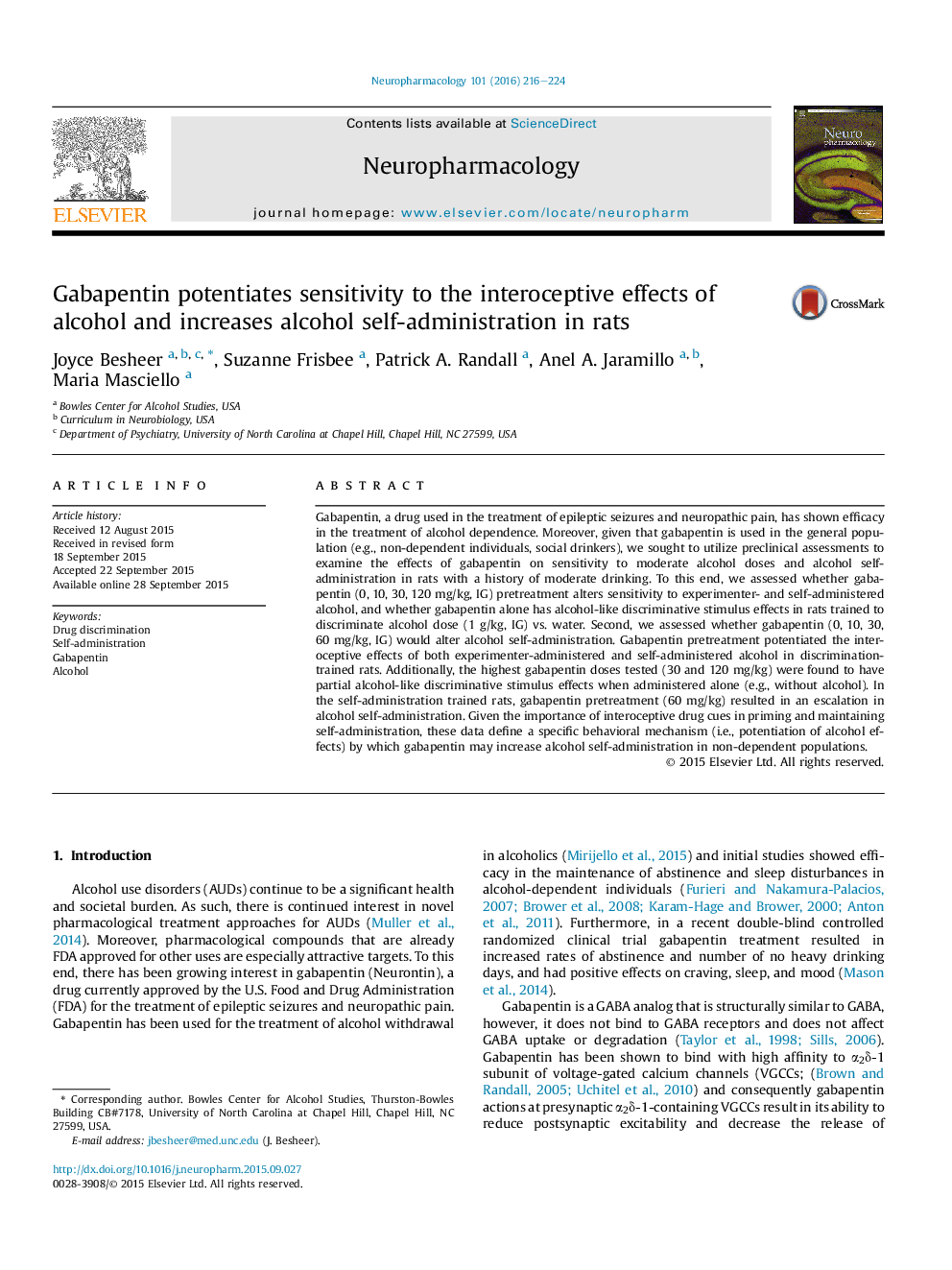| Article ID | Journal | Published Year | Pages | File Type |
|---|---|---|---|---|
| 2493113 | Neuropharmacology | 2016 | 9 Pages |
•Increased sensitivity to experimenter- and self-administered alcohol following gabapentin pretreatment.•Gabapentin pretreatment has partial alcohol-like effects.•Increased self-administration following gabapentin pretreatment.
Gabapentin, a drug used in the treatment of epileptic seizures and neuropathic pain, has shown efficacy in the treatment of alcohol dependence. Moreover, given that gabapentin is used in the general population (e.g., non-dependent individuals, social drinkers), we sought to utilize preclinical assessments to examine the effects of gabapentin on sensitivity to moderate alcohol doses and alcohol self-administration in rats with a history of moderate drinking. To this end, we assessed whether gabapentin (0, 10, 30, 120 mg/kg, IG) pretreatment alters sensitivity to experimenter- and self-administered alcohol, and whether gabapentin alone has alcohol-like discriminative stimulus effects in rats trained to discriminate alcohol dose (1 g/kg, IG) vs. water. Second, we assessed whether gabapentin (0, 10, 30, 60 mg/kg, IG) would alter alcohol self-administration. Gabapentin pretreatment potentiated the interoceptive effects of both experimenter-administered and self-administered alcohol in discrimination-trained rats. Additionally, the highest gabapentin doses tested (30 and 120 mg/kg) were found to have partial alcohol-like discriminative stimulus effects when administered alone (e.g., without alcohol). In the self-administration trained rats, gabapentin pretreatment (60 mg/kg) resulted in an escalation in alcohol self-administration. Given the importance of interoceptive drug cues in priming and maintaining self-administration, these data define a specific behavioral mechanism (i.e., potentiation of alcohol effects) by which gabapentin may increase alcohol self-administration in non-dependent populations.
